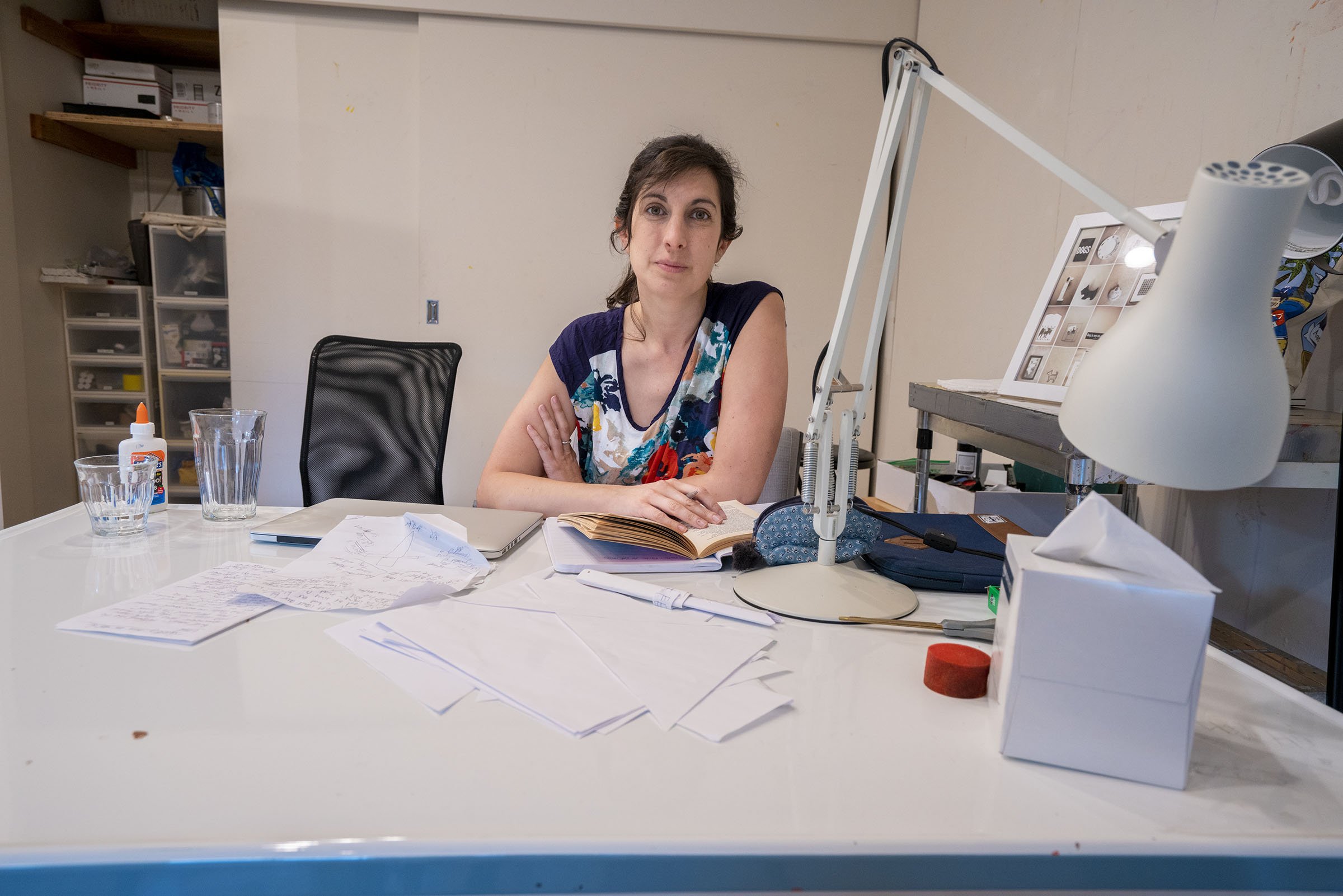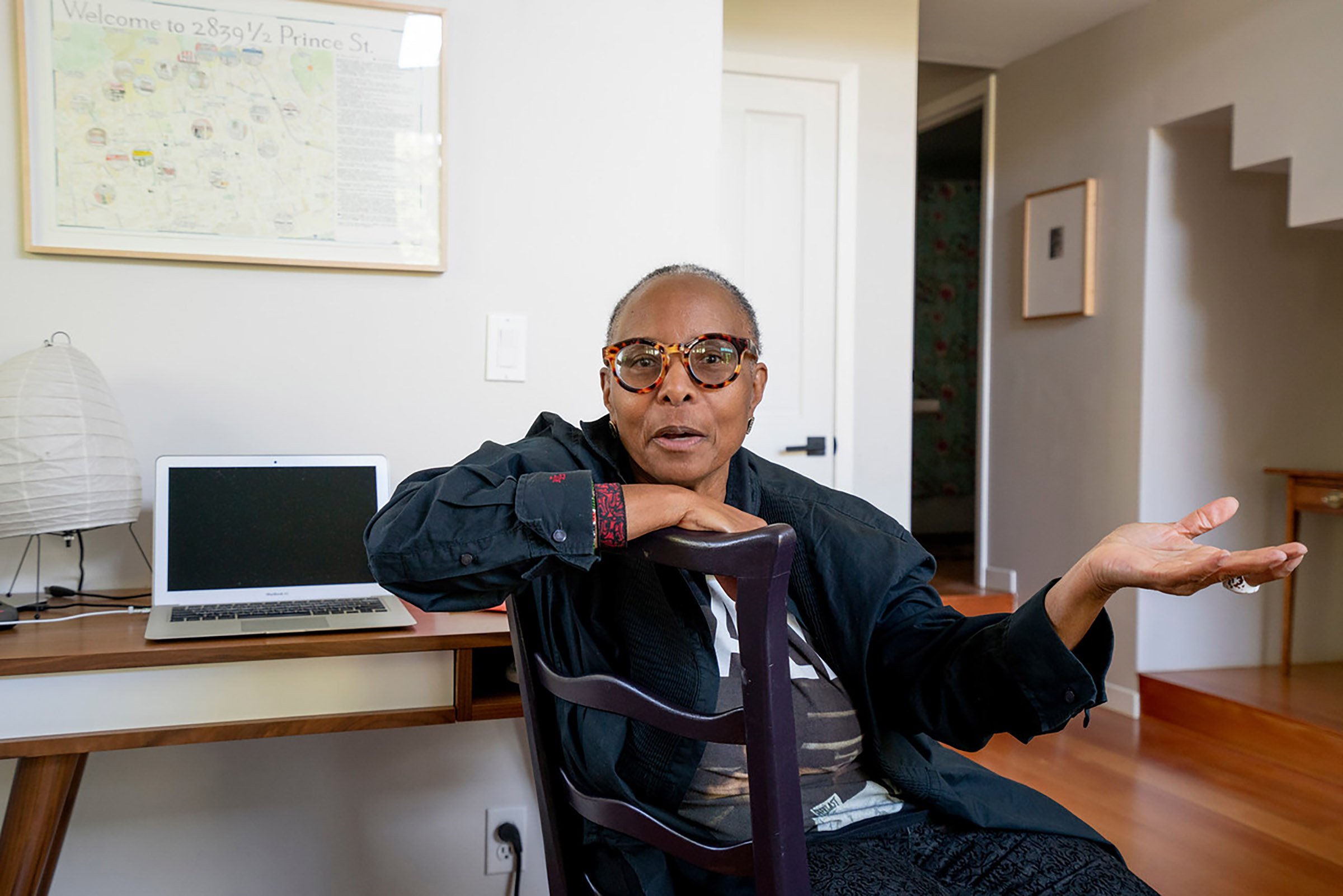Alicia Jo Rabins
Writer, Musician, Composer, Performer, Torah Teacher—May ’16
Website aliciajo.com | Based In Portland, Oregon
Q: You’ve talked about this residency as a place where you didn’t have to choose between key parts of your identity — art and parenting.
A: This is the only residency I’ve been able to do since my kids were born eight-and-a-half years ago. Since I already travel a lot for work, my days away are usually maxed out. I wouldn't have left my kids just to write for two weeks, and wouldn't have been able to bring them without child care, which the residency afforded me. I didn’t have to choose between being an artist and being a parent. I felt I could be the parent I wanted to be, and the artist I wanted to be. That was radical.
Q: Any other reflections from your time at Prince Street?
A: My residency was a bit different than the others in that I had two shorter visits, the first for two weeks and the other for ten days. The first visit I spent working on my book of poetry, Fruit Geode. I wasn’t quite sure what these poems were crystallizing into, and I needed to process four years of writing. When I got to the residency I remember having two piles, one for Fruit Geode, and one for another book, still in progress. It’s when I had culled the work into the two piles that I could really identify the heart and soul of Fruit Geode, figure out the order of the work, and so forth.
For the second visit, I wanted to work specifically on a memoir. During that time I had an amazing move forward on this seven-year project. I went through 70,000 words, and among other things changed the entire book from present to past tense. I went through every single sentence. During the course of that I made many other changes as well.
Many parts of my artistic practice I can do in short periods of time when I’m home, and I don’t always need a period of unbroken concentration to move forward. But some parts of my process require it, and I used the residency period very consciously on those pieces. For the memoir, for instance, I needed that unbroken focus to stay inside of the book; to hear it speak to itself, and get at the consistency of its voice.
Q: You’ve mentioned the sacredness of this space, both to create a separation between art and from the hurly-burly of daily life, and to break down the barriers between them
A: It would have been heartbreaking for me to work on a book about parenting, but across the country from where my kids were. To immerse myself in the book, and then to parent in the evenings, was invaluable emotionally.
Q: There is one moment that stood out for you as bringing together all the qualities of artistic discovery and family togetherness. Can you share that?
A: My daughter Sylvia wrote her first words on the back steps of the house. She had found some chalk, and when I came over to her I saw she had written one word: Mama.
Alicia Jo Rabins is a writer, musician and Torah teacher. The New York Times calls her voice “gorgeous”; the San Francisco Chronicle calls her writing “a poetry page-turner, both sexy and humble.” She is the author of Divinity School (2015 APR/Honickman First Book Prize) and Fruit Geode (finalist for the 2018 Jewish Book Award), and has released three albums with Girls in Trouble, her indie-folk song cycle about women in Torah. She is the creator and star of the independent feature film, A Kaddish for Bernie Madoff, which the Atlantic calls "a blessing." Rabins lives in Portland, Oregon with her husband and their two children.





